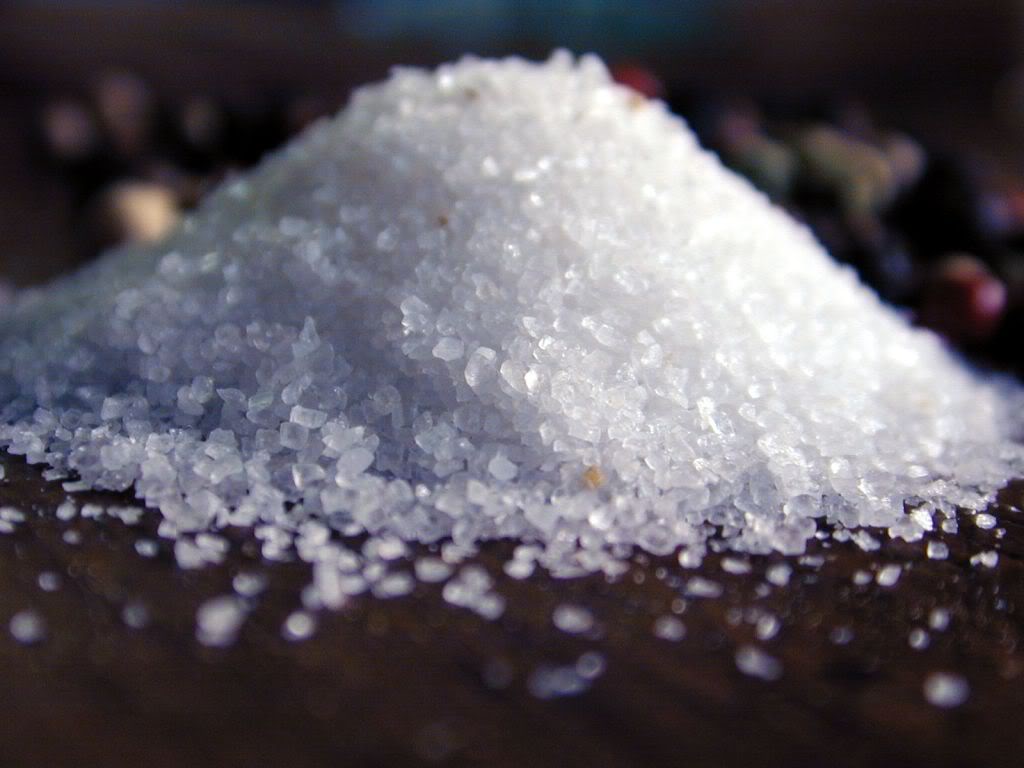Salt can prevent dehydration, which can lead to muscle cramps.
The importance of what you consume before your workout cannot be overstated. It significantly boosts your energy levels and performance, increasing muscle mass and strength. Research has shown that pre-workouts are specialized supplements designed to energize you during your exercise sessions and have been shown to enhance training performance in athletes (1).
Both bodybuilders and fitness enthusiasts regard pre-workouts as crucial for maximizing the efficacy of their exercise routines. Selecting the appropriate pre-workout prevents dehydration and reduces the risk of muscle strains and cramps, particularly during intense training sessions. While many excellent pre-workout products are on the market, athletes sometimes explore unconventional alternatives to achieve that extra edge.
In this discussion, we focus on an unexpected alternative: salt. Yes, you read that correctly. Despite sounding surprising, salt can be an effective pre-workout booster that enhances exercise performance. However, individuals with blood pressure issues should approach this option with caution.
This article delves deep into the potential of salt as a pre-workout supplement, highlighting its benefits and offering guidance on how athletes can leverage it to optimize their training outcomes. Continue reading to discover more about the advantages and practical applications of using salt as a pre-workout enhancer.
What Constitutes Salt?
Salt combines two essential nutrients, sodium and chloride, and is used for seasoning and preserving. It also plays a vital role in hydration, proper blood flow, and muscle functions. When consumed in the right proportion, salt has many benefits for the human body. Studies show the importance of salt and its role in disease prevention (2).
How Much Salt Do You Consume in a Day?
We can’t ignore the importance of salt in our bodies. However, consuming too much salt can lead to health complications, including cardiovascular diseases, osteoporosis, and kidney failure.
Bodybuilders and fitness enthusiasts should always consume salt in moderation, whether raw or combined. This study from the National Library of Medicine recommends consuming 3g to 5g of salt daily (3).
Salt as a Pre-workout
Excess salt can be a health risk, but doing a lot of workouts can cause you to sweat a lot. This causes you to lose loads of sodium meant for proper bodily functions. You should increase your salt intake if you sweat heavily before and after workouts. You could also seek advice from a professional health expert.
Potential Benefits of Salt as a Pre-workout
Consuming salt as a pre-workout is essential for getting the most out of your workout sessions. It’s also important to note how much salt is needed to avoid cardiovascular diseases and other health complications. Below are some benefits of salt as a pre-workout.
Replace Electrolytes
Salt (sodium) is an important electrolyte that works with potassium to maintain plasma concentration in the body. Research demonstrates how sodium helps the body’s fluid balance (4). Bodybuilders lose about 1g of sodium per hour during intense workouts, a health risk to the body’s fluid system. Salt can replace lost electrolytes.
Reduces Body Temperature
The higher your blood volume, the easier it is for your body to cool down. When you sweat, you lose fluids, which lowers your blood volume and increases your body temperature. Salt helps draw water into your blood, increasing blood volume, which could reduce body temperature.
Prevent Cramps & Improve Performance
Researchers have proven that salt is an effective pre-workout supplement for athletes who want to maximize their workouts (5). Excess salt lost when working out can be a problem for your nerves and muscles, leading to muscle cramps and reducing an athlete’s training performance. Salt before a workout can replenish fluid, and sodium loss is responsible for muscle function.
How Much Salt Should You Have as a Pre-workout?
The recommended daily salt intake is 3-5g. The amount of salt consumed as a pre-workout should depend on the nature and intensity of your training. For example, a HIIT workout or physical activity that causes lots of sweating will require more salt replenishment than a low-intensity exercise like walking. Find out what works best to get the most from your workouts while staying healthy.
How to Have Salt as a Pre-workout
There are different ways to consume salt in pre-workout form. You can put it in your meal or get it in liquid form. It also depends on your salt, which can be any of the three types below.
- Table salt (processed salt that has some of its nutrients removed)
- Himalayan salt (contains iron-oxide, which gives it the distinct pink color)
- Sea salt (which is less processed)
FAQs
How much salt should you consume before a workout?
Research has proven that working out causes you to lose about 1g of salt per hour. The human body needs about 3-5g of salt per day. Remember this when supplementing with salt, and consider what your body needs before and during workouts.
Does salt before a workout give you a pump?
Salt as a pre-workout may give you a pump. Sodium pulls water into your bloodstream and increases blood flow. This blood flow increase increases your muscle size, which creates a pump in the muscles when you lift weights.
Do you need salt if you workout?
Salt can help improve your performance when you work out, allowing you to get the most out of your training and increasing your endurance and athletic performance. However, if you choose this route, you should consider the guidelines for salt intake and your health.
What does salt water do before a workout?
Drinking salt water before a workout can increase blood volume, which can help regulate body temperature when training. Salt could also reduce muscle cramps and increase an athlete’s performance.
Conclusion
Salt is a pivotal pre-workout supplement for bodybuilders and fitness enthusiasts. When consumed appropriately, it can elevate training intensity, enhance athletic prowess, and offer notable health advantages. However, it is crucial to understand your personal tolerance and optimal consumption levels.
Tailoring your salt intake to your body’s specific needs and responses is equally important. To integrate salt seamlessly and safely into your pre-workout routine, seeking guidance from a healthcare professional is highly recommended to circumvent potential health risks.
Follow us on Instagram, Facebook, and Twitter for more nutrition info!
References
- Martinez, N., Campbell, B., Franek, M., Buchanan, L., & Colquhoun, R. (2016). The effect of acute pre-workout supplementation on power and strength performance. Journal of the International Society of Sports Nutrition, 13, 29. https://doi.org/10.1186/s12970-016-0138-7
- Mokhtari, M., & Vahid, H. (2016). Salt and its Role in Health and Disease Prevention from the Perspectives of Iranian Medicine and Modern Medicine. Iranian journal of medical sciences, 41(3 Suppl), S58.
- Mente, A., O’Donnell, M., & Yusuf, S. (2021). Sodium Intake and Health: What Should We Recommend Based on the Current Evidence?. Nutrients, 13(9), 3232. https://doi.org/10.3390/nu13093232
- National Academies of Sciences, Engineering, and Medicine; Health and Medicine Division; Food and Nutrition Board; Committee to Review the Dietary Reference Intakes for Sodium and Potassium; Oria M, Harrison M, Stallings VA, editors. Dietary Reference Intakes for Sodium and Potassium. Washington (DC): National Academies Press (US); 2019 Mar 5. 8, Sodium: Dietary Reference Intakes for Adequacy. Available from: https://www.ncbi.nlm.nih.gov/books/NBK545436/
- Coles, M. G., & Luetkemeier, M. J. (2005). Sodium-facilitated hypervolemia, endurance performance, and thermoregulation. International journal of sports medicine, 26(3), 182–187. https://doi.org/10.1055/s-2004-820989










